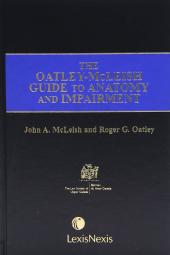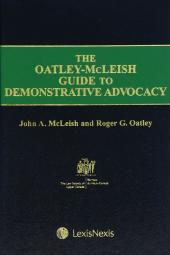Addressing the Jury: Achieving Fair Verdicts in Personal Injury Cases, 3rd Edition

One Year Subscription Only Terms
Subscribers receive the product(s) listed on the Order Form and any Updates made available during the annual subscription period. Shipping and handling fees are not included in the annual price.
Subscribers are advised of the number of Updates that were made to the particular publication the prior year. The number of Updates may vary due to developments in the law and other publishing issues, but subscribers may use this as a rough estimate of future shipments. Subscribers may call Customer Support at 800-833-9844 for additional information.
Subscribers may cancel this subscription by: calling Customer Support at 800-833-9844; emailing customer.support@lexisnexis.com; or returning the invoice marked 'CANCEL'.
If subscribers cancel within 30 days after the product is ordered or received and return the product at their expense, then they will receive a full credit of the price for the annual subscription.
If subscribers cancel between 31 and 60 days after the invoice date and return the product at their expense, then they will receive a 5/6th credit of the price for the annual subscription. No credit will be given for cancellations more than 60 days after the invoice date. To receive any credit, subscriber must return all product(s) shipped during the year at their expense within the applicable cancellation period listed above.
Product description
What Others Have Said About the Previous Edition
“Roger has produced one of those rare advocacy texts that stand as a shining ‘how to’ example for the young advocate while at the same time providing the veteran jury lawyer with much valuable advice and insight. Addressing the Jury represents an outstanding contribution to the art of advocacy before a jury and is truly the one must read on the subject.” – Geoffrey Adair, Q.C., Adair Morse LLP, Toronto, Ontario
“This is a wonderful book. It is a must read for anyone who wants to be a jury lawyer. It will certainly find a prominent place in my advocacy library.” – John A. Olah, Beard Winter LLP, Toronto, Ontario
“In these difficult times, with deserving plaintiff’s and our tort system under attack, we need all the help we can get. This treasure trove of great ideas, from one of Canada’s most respected trial lawyers, is a must read for any American attorney who wants the best for his or her client.” – Gregory S. Cusimano, Cusimano, Keener, Roberts Kimberley & Miles, P.C., Gadsden, Alabama, U.S.
“Every trial attorney, Canadian and American alike, must read this book. Oatley is brilliant and a true pioneer in the art of lawyering. He combines the best of psychology with his own highly evolved skills. Any trial attorney interested in winning should read this book. – David Wenner, Phoenix, Arizona, U.S.
The first and only Canadian book dedicated to practice before civil juries. Written by top expert litigators, this practical and easy-to-read book provides extensive guidance on how to apply and benefit from the concepts of courtroom communication and persuasion.
In today’s advocacy world where young lawyers seldom get the opportunity to try cases before a jury, this is an essential read before trying a lawyer’s first case before a jury.
Readers will benefit from:
- Tips for improving your communication skills;
- Annotated samples of opening statements and closing arguments;
- Detailed strategies for presenting some of the most difficult cases jurors hear;
- Persuasive jury openings that help capture the jurors hearts and minds before the defence says a word;
- Special techniques that produce effective examinations and cross-examinations before juries;
- Comprehensive examples that bring well-explained theories to life;
- Guidelines on the use of demonstrative evidence.
Who Should Read This Book
- Civil Litigators – Provides a complete guide for effective jury communication and improve advocacy skills.
- Criminal lawyers – The persuasive techniques described are applicable to both civil and criminal jury trials.
- Law Associations and Libraries – As an authoritative resource for patrons.
- Law Schools and Students – For use in advocacy courses.
 Lexis Nexis
Lexis Nexis 

